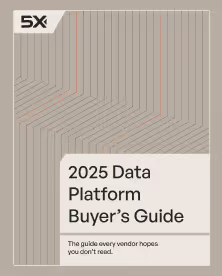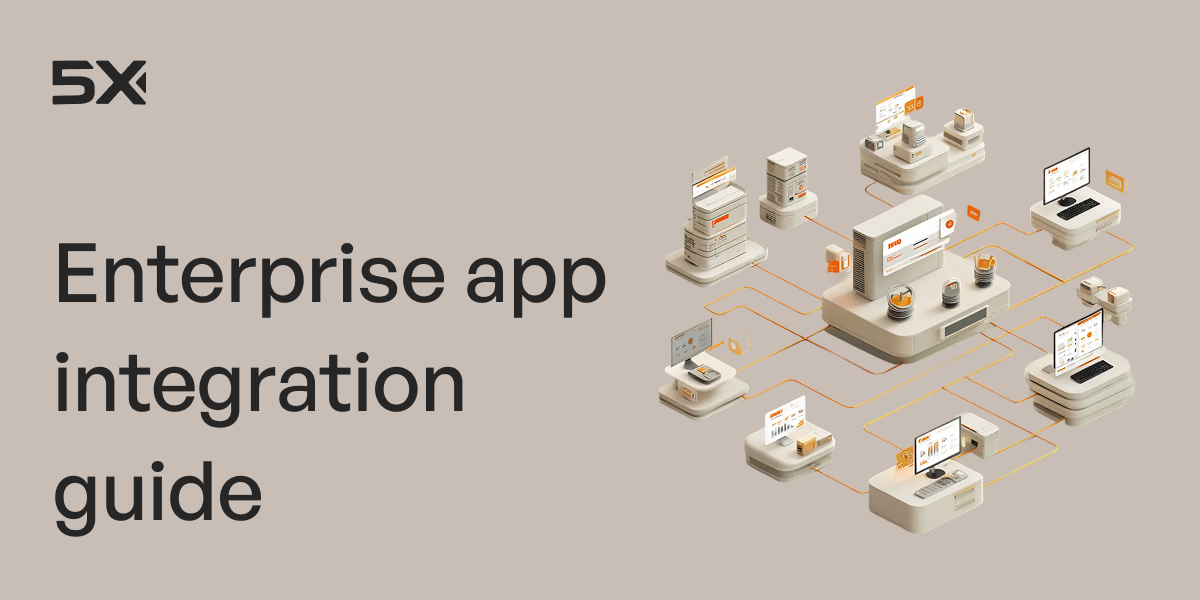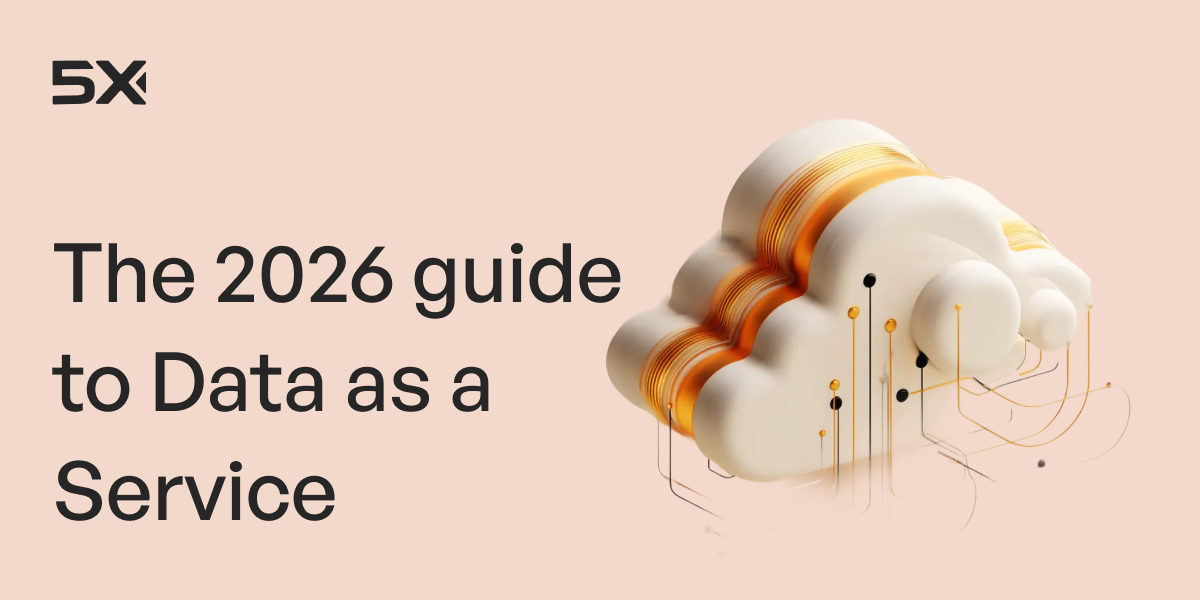Top 5 Rivery Alternatives

.png)
Table of Contents
TL; DR
Any business that is data driven or wants to become data-driven has to heavily rely on efficient data integration tools to extract, load, and transform (ELT) data from various sources. Rivery has become a popular choice for managing data pipelines, thanks to its powerful features and user-friendly interface. However, it's not always the perfect fit for every organization.
Whether you're looking for different features, pricing models, or just exploring other options, we've compiled a list of the top 5 Rivery alternatives that can help you optimize your data workflows.
A complete overview of Rivery.io

Rivery is a cloud-based platform that helps businesses build end-to-end ELT (Extract, Load, Transform) data pipelines. It allows users to build, manage, and automate data workflows without requiring extensive coding.
Key Features
- Fully automated SaaS platform: Rivery enables rapid setup and data connection with minimal maintenance
- 200+ native connectors: Connect to a wide range of applications, databases, file storage systems, and data warehouses like BigQuery, Redshift, Shopify, Snowflake, Amazon S3, etc.
- Python support: With Rivery, you can ingest data from various sources, transform it into business-ready models using SQL or Python, and orchestrate data operations.
- Expert-led support: Rivery provides engineering-led support to assist with all your data requirements.
- Reverse ETL: The platform also supports reverse ETL enabling you to push data insights back into your tech stack
Pros
- Intuitive and easy-to-navigate interface, which caters to both technical and non-technical users, reducing the learning curve.
- Broad range of connectors and supports various data sources, which simplifies data integration and management.
- Automates many common ETL tasks, such as incremental extraction, schema management, and deployment, which saves time and boosts productivity.
- Rivery's low-code environment enables quicker development cycles and easier adaptation to changing data needs.
- Handle large datasets efficiently, which is crucial for businesses dealing with significant volumes of data.
- Users find the documentation comprehensive and helpful, aiding in the smooth implementation and use of the platform.
Cons
- Rivery Pricing model can be complex, especially for small businesses or large-scale implementations
- Absence of certain data sources as ready-to-use connections.
- Rivery is often noted for focusing on batch processing, and its real-time data integration capabilities are not as strong.
- The drag-and-drop interface can be difficult to manage with large, complex data flows.
- Some users mention a learning curve for fully utilizing the platform's advanced features.
Pricing
Rivery pricing is consumption-based. Consumption is calculated in credits, or Rivery Pricing Units (RPUs). The Starter Plan charges $0.75, and the Professional Plan commences at $1.20. Read more about pricing here.
G2 rating: 4.7/5
The top 5 Rivery alternatives
1. 5X

5X is a powerful Rivery alternative, offering a more comprehensive solution for organizations seeking a full-stack data platform. While Rivery focuses on ETL and data orchestration, 5X goes beyond by covering the entire data lifecycle—from ingestion to visualization.
5X offers an enterprise-ready, full-stack data platform that streamlines the entire data process, from ingestion to visualization. Designed as a one-stop solution, 5X is an excellent choice for organizations that want to focus on driving business outcomes without getting bogged down by complex backend configurations.
Key features
- Ingestion: Uninterrupted data movement across all your systems with pre-built & custom connectors. 5X ingest data from over 500+ supported data sources.
- Full-stack data platform: Provides comprehensive capabilities for ingestion, warehousing, orchestration, and visualization in a single solution.
- Managed solutions: Handles complex backend configurations, allowing users to focus on business outcomes rather than technical details.
- User-friendly interface: Easy-to-use tools for building and managing data pipelines, including drag-and-drop functionality in the Job Editor.
- Job management: Includes features for creating, deploying, tracking, and analyzing data pipelines with detailed logs and run history.
- Enterprise-grade scalability: Designed to support large-scale data operations and handle the entire data lifecycle efficiently.
Pros
- 5X has a highly intuitive and user-friendly interface, making it accessible for users of varying technical expertise.
- The platform offers an all-in-one solution for data management, reducing the need to toggle between multiple tools and vendors, which simplifies data operations.
- 5X leads to significant cost savings up to a 50% reduction in total cost of ownership compared to managing a data stack in-house.
- The 5X team is responsive, knowledgeable, and proactive in offering support and consultancy, effectively acting as an extension of the client’s data team.
- 5X is quick to set up, with minimal disruption to ongoing business operations, enabling faster time to value.
Cons
- New features can require initial guidance, indicating a slight learning curve.
Pricing
5X offers you a pay-as-you-go approach with no up-front costs. Only pay for the products you use. Learn more about 5X’s pricing here.
G2 rating: 4.8/ 5
Why choose 5X?
If you’re looking for a platform that combines ease of use with full-stack capabilities, 5X stands out as a top choice.
2. Airbyte

Airbyte is an rivery alternatives open source platform that allows users to connect and synchronize data from various sources to data warehouses, lakes, or databases. It offers a flexible and scalable solution with pre-built connectors, making data integration efficient and customizable.
Key features
- Airbyte has an extensive pre-built library of about 350+ connectors.
- Airbyte has a vast open-source community, which contributes to the maintenance of connectors.
- Allows you to build a no-code connector in less than ten minutes or use CDK to create a low-code connector.
- Airbyte offers two versions: Headless, for a fully customizable interface powered by their API, and UI, a ready-made interface that allows easy data synchronization with minimal setup.
Pros
- Airbyte offers a vast array of pre-built connectors.
- Airbyte community is active and responsive, with regular updates and the ability to contribute to the tool's development.v
- Supports both cloud-based and self-hosted deployments
- Features like command-line interface (CLI) integration, orchestration tool compatibility, and automated task management
Cons
- Documentation for some connectors is either outdated or insufficient
- The open-source version lacks some enterprise features, such as user management and pod resource configuration via the web interface.
- Some connectors may not be fully reliable
- Need for better error reporting and handling
Pricing
The open-source version is free to use. The cloud-based version has three plans - free, teams and enterprise based plans for which you can connect with their sales team.
G2 rating: 4.5/5
Why choose Airbyte?
Airbyte has a better connector library as compared to Rivery and the community support gives an upper hand to Airbyte.
3. Hevo Data

Hevo Data is a no-code data pipeline platform that easily integrates and automates data flows from various sources to destinations like data warehouses and analytics tools. It provides real-time data streaming, ensuring up-to-date insights for data-driven decision-making.
Key features
- The platform supports in-flight data formatting, allowing users to clean and prepare data before it reaches the destination, streamlining the transformation process.
- Hevo offers the ability to save incomplete pipelines as drafts, enabling users to pause and resume configuration at their convenience
- Hevo syncs historical data from the source, prioritizing recent events to ensure analysts access the most current data first.
- Provides flexible replication settings, allowing users to sync entire databases, specific tables, or individual columns.
Pros
- Supports a wide range of data sources, allowing users to pull data from various platforms
- The platform's automation features, such as scheduled data extraction and transformation processes, are highly valued for reducing manual workload and ensuring consistency.
- Easy to scale with increasing data volumes
- Responsive and helpful customer support team
- Real-Time Data Processing
Cons
- Lacks advanced features and customization options compared to competitors
- Pricing model can become expensive as data volumes increase
- While the platform is user-friendly for basic tasks, some users report a steeper learning curve
- Intermittent issues with data synchronization
Pricing
- Free plan: Create pipelines with only the free sources, up to 1 million events/month
- Starter plan: $239/Month, up to 5 million events/month
- Professional Plan: $679/Month, up to 20 million events/month
- Business Critical: For advanced data requirements like real-time data ingestion, contact sales
G2 rating: 4.3/5
Why choose Hevo?
Since Hevo is code-free with integrations to various tools and data warehouses, it is easier for non-technical users to get up and running with data.
4. Talend

Talend is a Java code-based solution known for its open-source flexibility and robust ETL capabilities, enabling data migration and transformation across various sources. For organizations considering rivery competitors, Talend offers deployment flexibility on-premises, in the cloud, or in hybrid environments.
Key features
- Open-source flexibility allows users to customize and extend its functionality according to their needs.
- Talend supports a wide range of 1,000+ (non-native) connectors
- Provides comprehensive data management ensuring data quality, governance, and compliance.
- Talend is designed to handle both small and large-scale data integration projects, making it suitable for enterprises of all sizes.
- The platform supports real-time data processing
Pros
- Enhanced data protection with automated backup and disaster recovery features
- The platform allows for scalable services, making it adaptable to different organizational needs
- supports a wide range of connectors, making it easy to integrate with various databases
- Provides smooth data transformation and management services.
Cons
- Licensing fees is expensive
- Complex configuration and workflow creation
- Documentation is often lacking, and the support service may not always provide deep insights into specific use cases
Pricing
- Talend Cloud is $12k/user/year or $1170/user/year with unlimited usage
G2 rating: 4.3/5
Why choose Talend?
Talend's data management capabilities make it a viable choice for large enterprises
5. Matillion

Matillion offers a no-code solution that accelerates data pipeline creation, empowering businesses to extract maximum value from their data. Compared to Rivery Pricing, Matillion's consumption-based model offers different value points for organizations with various needs.
Key features
- Manage all data pipelines from a single platform
- Load data from any source into your cloud data warehouse using high-code and no-code tools
- Incorporate AI into data processes with features like Matillion Copilot for plain language prompts
- Dynamic user community and Matillion Exchange for custom connectors, dbt packages, and reusable pipeline templates
Pros
- Drag-and-drop interface, making it accessible even to users without coding experience.
- Easily manages large datasets and complex transformations
- Matillion offers built-in connectors to a variety of cloud services, databases, and third-party applications
- The platform is scalable, making it a great choice for startups and large enterprises
- Its pay-as-you-go pricing model allows businesses to only pay for what they use
Cons
- Costs can quickly escalate as the scale of operations increases
- Matillion's customization options limited
- Git integration is clunky and inefficient
- Reusing templates, especially for data quality, can be challenging
- While Matillion is cloud-based, it still requires some manual maintenance and updates
Pricing
- Matillion offers a consumption-based pricing model and enables you to pay for what you need.
- Paid plans start at $2.00/credit for basic, Advanced $2.50/credit and Enterprise $2.70/credit
G2 rating: 4.4/5
Why choose Matillion?
Choose Matillion if you need a more traditional ETL tool with strong transformation capabilities and have the resources to manage your infrastructure.
Choose wisely
Choosing the right platform is crucial for optimizing your data workflows. While Rivery is a strong contender, 5X stands out among rivery alternatives open source and commercial options, offering a comprehensive full-stack data solution covering everything from ingestion to visualization. Its user-friendly interface, extensive scalability, and cost-efficiency make it an ideal choice for organizations seeking an integrated platform.
Compared to other rivery competitors like Airbyte, Hevo Data, Talend, and Matillion, which each offer unique features and benefits, 5X excels in providing a streamlined, enterprise-grade solution that simplifies data management. With high user ratings and a reputation for reducing costs and enhancing productivity, 5X is a compelling option for businesses looking to optimize their data operations efficiently.
FAQs
What's the difference between Rivery vs Matillion?

What's the difference between Rivery vs Talend?

What's the difference between Rivery vs Airbyte?

Building a data platform doesn’t have to be hectic. Spending over four months and 20% dev time just to set up your data platform is ridiculous. Make 5X your data partner with faster setups, lower upfront costs, and 0% dev time. Let your data engineering team focus on actioning insights, not building infrastructure ;)
Book a free consultationHere are some next steps you can take:
- Want to see it in action? Request a free demo.
- Want more guidance on using Preset via 5X? Explore our Help Docs.
- Ready to consolidate your data pipeline? Chat with us now.

How retail leaders unlock hidden profits and 10% margins
Retailers are sitting on untapped profit opportunities—through pricing, inventory, and procurement. Find out how to uncover these hidden gains in our free webinar.
Save your spot






%201.svg)


.png)






